10. Peter Gabriel – Last Temptation of Christ
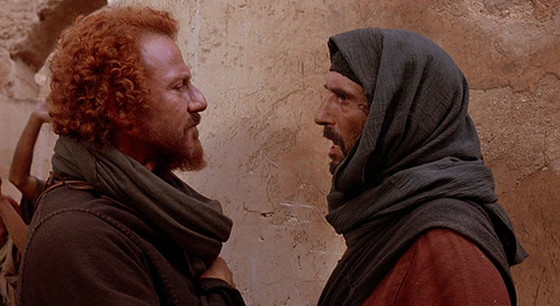
Genesis extravagant ex-frontman composed the soundtrack for the polemic Martin Scorsese take on Jesus Christ’s story, based on the infamous book by Nikos Kazantakis, which depicted Christ as a normal man. Gabriel did a vast research before composing the soundtrack and recruited musicians from different parts of the planet (Middle East, Africa, Asia and Europe) to compose this world music influenced score.
There are lots of different flavours in this soundtrack. The first track The Feeling Begins is a powerful mystical piece carried by the Armenian instrument duduk. Gethsemane is a meditative piece in which Gabriel mixes flutes with his voice, resembling the intro of Herbie Hancock’s and The Headhunters recording of Watermelon Man. There are moments in which Gabriel mixes his notorious synth influences with African and Brazilian percussion, kurdish melodies and Egyptian instruments, making this soundtrack an ear opening experience.
9. Trent Reznor and Atticus Ross – The Social Network

Trent Reznor started to get involved in film composition in the 90s, producing the soundtrack for Oliver Stone’s Natural Born Killers and David Lynch’s Lost Highway. But only in 2010, he had his film composition breakthrough along with his partner Atticus Ross. Using lots of noises and electronic effects, the pair was able to create a soundtrack that carried the film’s momentum without sounding excessive.
Most of the soundtrack is right up on Reznor’s alley: synthesized fueled tracks. The highlight is Hand Covers Bruise, created with the help of the Swarmatron, a synth-machine that Reznor and Ross operated in order to create noises that sound organic and electronic at the same time. The result is a dark soundtrack that fits perfectly the movie atmosphere.
8. Daft Punk – Tron

Director Joseph Kosinski said that when he interviewed the duo about composing the soundtrack the interview turned upside down; Daft Punk were such big fans of the original Tron that they wanted to know if the director would respect the style of the movie.
The French duo is known worldwide for their electro pop successes and for the fact that they never show their face, always performing hidden in helmets. This Soundtrack certainly has their popular fingerprint in it, the track Derezzed is everything you expect from a Daft Punk song: a hypnotic beat that can make the dancefloor quiver. However, the best of this soundtrack is the production that usually is not associated with the duo.
Taking influence from Bernard Herrmann, Max Steiner and Maurice Jarre monumental orchestral arrangements, John Carpenter and Wendy Carlos electronical scores, as well as Vangelis futuristic sounds, Guy-Manuel de Homem-Christo and Thomas Bangalter were able to create a fascinating soundtrack in terms of eclecticism, power and variation.
7. Nick Cave & Warren Ellis – The Assasiantion of Jesse James by The Coward Robert Ford
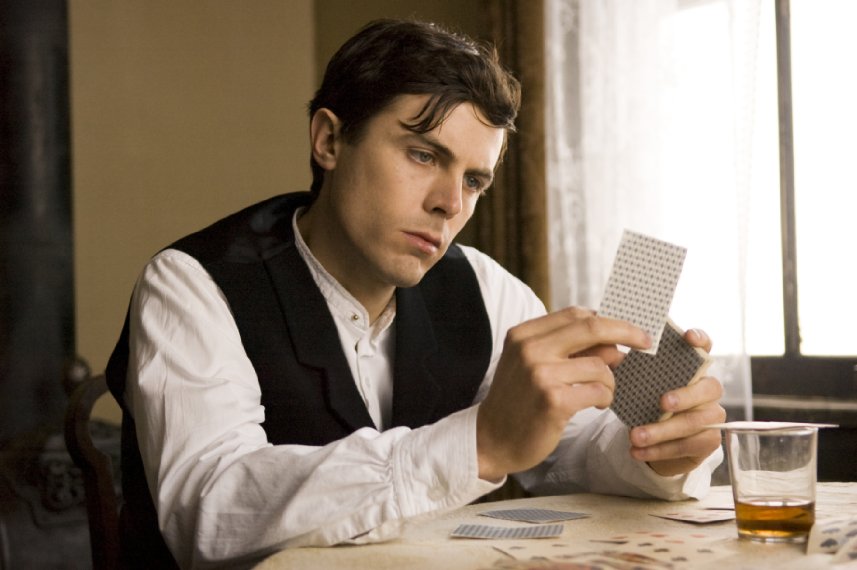
Western soundtracks have been often associated with two different lines of composers. The first one is the more traditional line, represented by the likes of Elmer Bernstein and Dimitri Tiomkin, who dominated the Western’s production with grandiose orchestral sounds evoking the wilderness and the epic aspects of the genre. The second one is the line of Italian composers directly influenced by Ennio Morricone’s revolution of Westerns scores; names like Luis Bacalov, Riz Ortolani and Bruno Nicolai borrowed from Morricone’s idiosyncratic aesthetics to compose Spaghetti western soundtracks.
The interesting thing about Nick Cave and Warren Ellis’ soundtrack is that they don’t follow any of these lines. That is also related to the fact that Andrew Dominik’s western is much more focused on character development than in action, an unorthodox approach to the genre. The score is permeated by the subtlety of violin, cello, and piano sparse notes, as opposed to the shrill sound of old Westerns or the surf-guitar tension of Spaghetti Westerns.
The soundtrack plays according to the slow pace of the movie as if the director wanted the audience to feel how Southern life was in the 19th century. The result is a score that adds lots of emotional value to long shots of wilderness and especially adds substance to the building of Jesse James and Robert Ford’s relationship as well as their inevitable end.
6. Queen – Flash Gordon
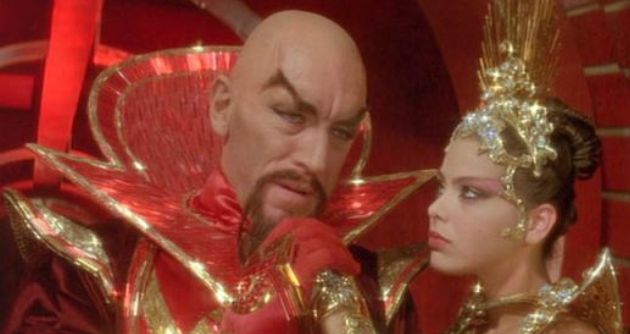
There is an infamous story about the reaction of legendary Italian producer Dino de Laurentiis when somebody pitched him the idea of having Queen composing the soundtrack of the sci-fi classic: “Who are the queens?” was his response.
Freddie Mercury’s band was not the first rock group who was invited to compose incidental music to a film. Pink Floyd was hired by Michelangelo Antonioni to compose tracks for his American adventure, Zabriskie Point, but Antonioni did not like the result and discarded the majority of the score. The success of this approach occurred in Italy; the prog-rock group Goblin composed legendary soundtracks for Dario Argento in the 70s.
The opportunity of scoring background music, and not only songs, was what motivated Brian May to accept the challenge:
“We would be writing a film score in the way anyone else writes a film score, which is basically background music, but can obviously help the film if it’s strong enough. That was the attraction, because we thought that a rock group hadn’t done that kind of thing before, and it was an opportunity to write real film music.”
So the band took the challenge and did a remarkable job creating background music. In The Death Cell and The Love Theme are tracks that could be perfectly in a Vangelis catalogue, powerful synthesized sci-fi tracks, really different from the arena rock the band is most famous for.
5. Mike Patton – 1922
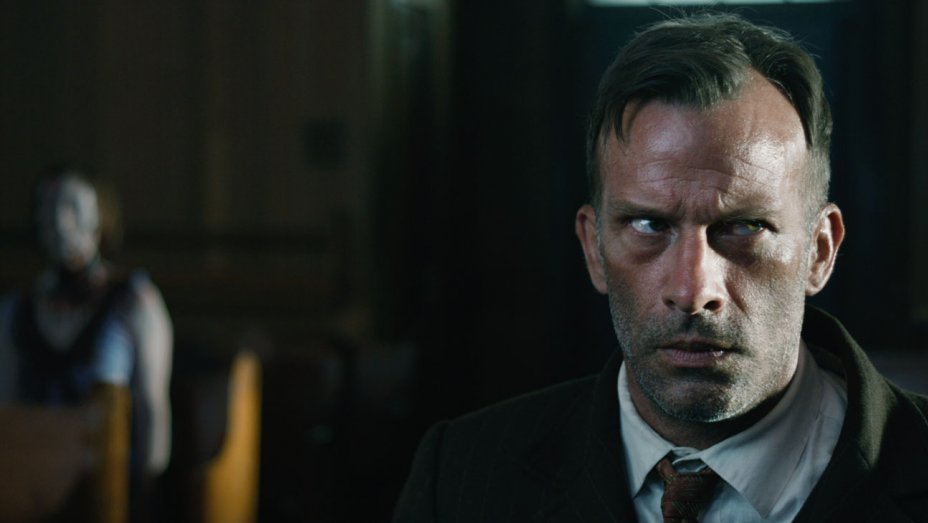
Mike Patton has been establishing a solid career as a soundtrack composer in the last years. His work in A Place Beyond The Pines showed signs of a more sophisticated side of him as a composer; his composition The Snow Angel, along with Ennio Morricone`s Ninna Nanna Per Adulteri, set the tone for this peculiar movie. His work in Crank: High Voltage is a great example of his idiosyncratic experimental-rock approach, really effective due to the feverish atmosphere of the movie.
The release of 1922 in 2019 confirmed that he has become a mature soundtrack composer, able to explore new musical territories. Patton displayed some spine-chilling tracks for the Stephen King adaptation. The track Mea Culpa could be present in a Bernard Herrmann catalogue. Omaha 1930 is a non-melodic minimalist effort with eerie noises, influenced by Ennio Morricone’s work for Dario Argento giallo movies. The overall result is a spooky, atmospheric and brilliant soundtrack which shows that Patton can go even further as a composer.
4. Isaac Hayes – Shaft
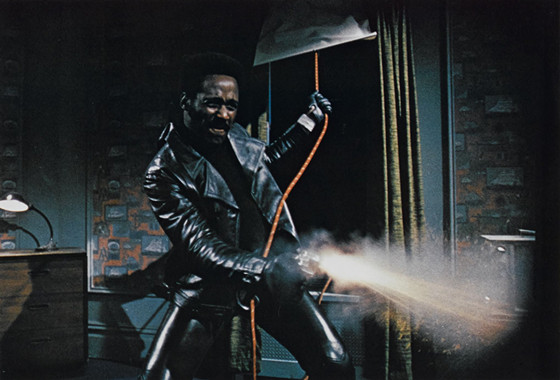
There was an issue involving the nomination of Shaft’s soundtrack to the Academy Awards in 1972. Some jury members weren’t convinced Isaac Hayes should be nominated for best score since he didn’t know how to write music. Quincy Jones contacted members of the Academy and argued Hayes’ case, saying that he didn’t write the music physically but the ideas were his. This polemic issue serves as an example of how sometimes pop musicians are undervalued as soundtrack composers, as if it was a domain only for “serious” musicians.
The fact is that Shaft opened a door for pop musicians that wanted to work with movie scores and were ostracized by the industry. After Isaac Hayes’ score, different artists like Curtis Mayfield, Marvin Gaye, and James Brown followed its path and released soundtrack albums.
The soundtrack has many memorable moments. The title track has become a part of pop culture with its wah-wah, 16th cymbal hits and Isaac Hayes boastful lyrics about John Shaft.
Bumpy’s Lament is a beautiful soul lament that was sampled by Dr.Dre and turned into a new different thing in his Xplosive track. Ellie’s Love Theme is a beautiful jazzy ballad driven by a vibraphone melody. Shaft’s Cab Ride is a typical Stax groove with brass riffs. Do Your Thing and Soulsville are the other two songs in the album, and they stand out as some of the best songs in Hayes’ catalogue, especially Do Your Thing’s epic 15-minute solo ending.
Both background music and songs are masterpieces in this album that can be considered the definitive Blaxploitation soundtrack.
3. Clint Mansell and Kronos Quartet – Requiem for a Dream
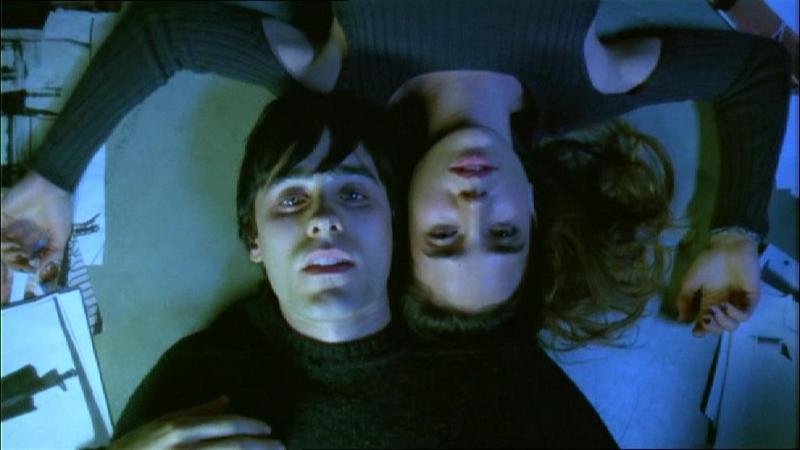
The second partnership between director Darren Aronofsky and Clint Mansell produced one of the most haunting soundtracks of the 2000s. Clint Mansell’s career as a pop musician was not very profuse, as he played as a multi-instrumentalist for the alternative rock group Pop Will Eat Itself for years, without much public recognition. Aronosfky first hired him to score the disturbing mathematical thriller, Pi, in which Mansell stayed in his territory: sampled beats, electronic noises, and industrial rock.
Requiem for a Dream represented a step further and a breakthrough for him. There are of course tracks in which his trademarks are present, but the collaboration with the legendary strings ensemble, Kronos Quartet, put his compositions into a new level.
Lux Aetherna is the most famous track of the score and it has become a larger than life track, a symbol in popular culture for tragedy, sadness, and despair, used in different media and recognizable for people who have never seen the film. There are two congas in the score, providing a bizarre Latin flavour for such a depressing story. Winter: Southern Hospitality is everything you expect from Kronos Quartet, especially their Shostakovich pieces: tense violins shrieking anxiously towards a tragic ending. The result is a soundtrack that worked as a character for the movie and launched the career of one the most interesting soundtrack composers of the present day.
2. Pino Donaggio – Dressed to Kill
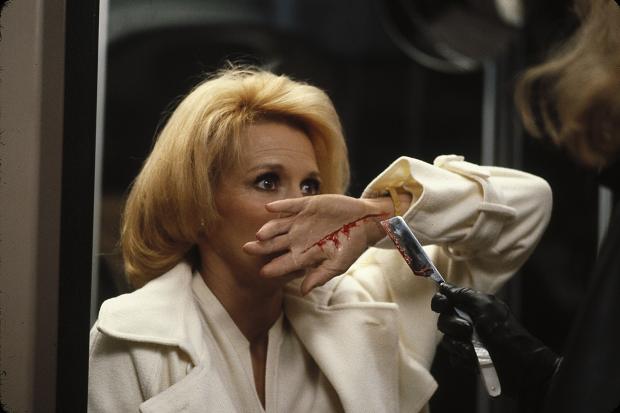
Pino Donaggio is one of the most strange cases in the soundtrack realm. The Italian composer had studied classical music since an early age but achieved success in Italy and worldwide through his pop songs in the 60s, which he composed and sang. When director Nicholas Roeg arrived in Venice to film his cult macabre thriller Don’t Look Now he was looking for local talents to work in the movie.
The Venetian Donaggio was appointed as soundtrack composer, despite having no experience in the area. The result was so good that Donaggio seemed like a veteran movie composer in his first film. This soundtrack drew the attention of Brian de Palma, when the director was hiring a composer for his adaptation of Stephen King’s tale about a psychic teenager, Carrie. Donaggio wrote a beautiful soundtrack for the horror classic and worked with De Palma on many projects after.
Dressed to Kill is one of his best soundtracks for De Palma, mixing beautiful melodies along with scary moments. The Title Theme is an unforgettable orchestral piece with descending notes and changing chords. There are obviously many Bernard Herrmann moments, since De Palma’s obsession with Alfred Hitchcok and his preferred composer. Quarter notes, Psycho-esque staccatos, spiraling resolutions, screeching violins, dissonant intervals; all Hermann cliches are present, but incredibly Donaggio, like De Palma himself, is capable of putting his imprint in the score despite all Hitchcokian references.
1. Danny Elfman – Batman

Before being one of the most respected soundtrack composers in the movie industry, Danny Elfman used to be the frontman of new wave’s prominent band Oingo Boingo. Director Tim Burton was such a fan of the band that he contacted Elfman to compose the score for his first movie, Pee Wee’s Big Adventure. The score was an exciting breakthrough, directly influenced by the circus-esque sound of Italian legend Nino Rota. After another collaboration in Beetlejuice in 1988, Burton called Elfman to score his adaptation of the Dark Knight series, Batman.
Elfman composed one of his most brilliant soundtracks and one of the most iconic when it comes to superhero movies, along with John Williams’ Superman. In fact, there is a lot of John Williams and Richard Wagner in this soundtrack. The theme is a spectacular demonstration of how few notes can say many things. Using only a B minor scale, with the notes B, C#, D, G and F#, Elfman was capable of composing an outstanding theme for the movie, capturing all the epic and somber aura of the movie.
In Kitchen, Surgery, Face-off the composer was able to portray the tenderness of Bruce Wayne’s romantic dinner, the terror of Joker’s post-accidental surgery and the twisted sense of humour of the character, represented by a perverted waltz. Clown Attack is a mix between Ennio Moricone’s famous low-set piano motifs (as used in The Untouchables, La Classe Operaia va in Paradiso and others) and Carl Stalling frenzy orchestration for Warner Brothers’ cartoons. Descent into Mystery is an operatic piece, mixing choir and the Batman theme.
Summing up, the Soundtrack is a brilliant display of eclecticism, musical knowledge and sensibility, since in all moments it works as a vehicle for the movie, never overpassing it. Even though it serves as a background for the action, when listened alone, it maintains its cohesiveness and many details appear to the listener. A masterpiece.